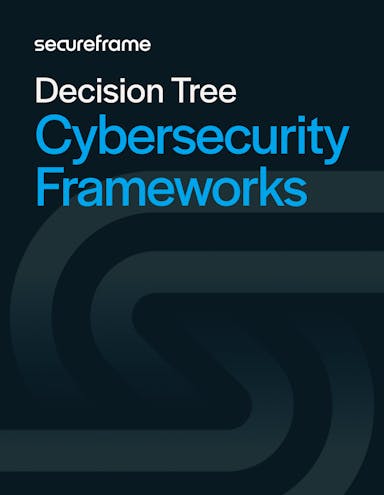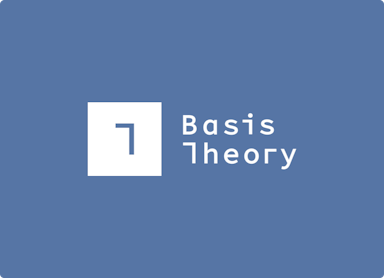
Compliance Managers: How They Help Modern Organizations Navigate Compliance
Anna Fitzgerald
Senior Content Marketing Manager
Emily Bonnie
Senior Content Marketing Manager
In today’s complex regulatory and threat landscape, organizations face increasing pressure to adhere to various regulatory and compliance frameworks.
Ensuring compliance can be a daunting task, especially without a dedicated professional to manage these responsibilities. This is where a compliance manager comes into play.
In this blog, we’ll explore what a compliance manager is, the vital role they perform, why some organizations may not have one in-house, and how Secureframe’s compliance managers can help fill the gap.
What is a compliance manager?
A compliance manager is a professional responsible for ensuring that an organization adheres to all relevant laws, regulations, industry standards, and internal policies. This role is critical for managing risk, preventing legal issues, and maintaining the integrity and reputation of the organization.
Compliance managers work across various industries, including finance, healthcare, retail, education, technology, and more, adapting their knowledge to fit the specific regulatory landscape of each sector.
While the role of a compliance manager may differ from organization to organization, it typically encompasses a core set of tasks, including identifying regulatory requirements, developing compliance programs, monitoring organizational adherence, and addressing any violations or gaps.
Ultimately, a compliance manager serves as the organization's safeguard against compliance risks, ensuring that business operations align with legal and ethical requirements. Their expertise not only protects the organization from financial and reputational harm but also strengthens trust with customers, partners, and regulators. By maintaining compliance as a core business priority, they help organizations navigate complex regulatory landscapes while driving sustainable growth.
Let’s take a closer look at the role and responsibilities of a compliance manager.
What does a compliance manager do?
The duties of a compliance manager are extensive and varied, encompassing a wide range of activities aimed at fostering a culture of compliance within the organization.

Key responsibilities typically include:
- Identifying compliance requirements: Compliance managers help identify all applicable laws, regulations, and standards that affect the business and any areas where they fail to meet requirements. This is key to reducing compliance risk and the associated reputational, business, financial, and legal implications that can affect day-to-day business operations.
- Developing and implementing compliance strategies or programs: Compliance managers create comprehensive strategies or programs to ensure the organization meets all regulatory and framework requirements. This includes drafting policies and procedures, conducting risk assessments and developing remediation plans, and establishing internal controls.
- Monitoring and performing self-assessments: Compliance managers regularly monitor and reviewM internal processes to ensure compliance with laws and regulations. In order to identify any potential risks or issues and work to address them promptly, these professionals may conduct self-assessments or internal audits before a third-party audit.
- Overseeing and managing audits: Compliance managers oversee the entire audit lifecycle, including audits conducted internally or externally, ensuring that the organization is prepared for evaluations and able to demonstrate compliance effectively. This encompasses scheduling, managing resources, documenting results, and ensuring compliance with internal policies and external regulations and standards. Audit management can be challenging without the right experts and tools if your organization complies with multiple framework.
- Liaising with audit firms and regulatory bodies: Compliance managers often serve as the point of contact between their organization and audit firms or regulatory bodies, ensuring timely and accurate reporting and facilitating any necessary communication.
- Handling investigations and remediations: In the event of a compliance issue, ethical violation, or other type of breach, compliance managers may work with organizational leadership to conduct investigations to determine the cause and implement corrective actions to prevent future incidents.
- Training and educating employees: A significant part of a compliance manager’s role is to educate employees on compliance policies and procedures. They may develop and conduct training sessions, create educational materials, and ensure that staff members complete regular training and review and accept policies so they are aware of their responsibilities regarding compliance.
- Reporting to leadership and stakeholders – Compliance managers may be responsible for providing regular reports and updates to executives, board members, and other stakeholders on compliance risks, program effectiveness, and audit outcomes. Ideally, they will help identify and use key compliance metrics and insights to drive strategic decision-making and continuous improvement.

Cybersecurity Frameworks Decision Tree
Looking for guidance for selecting an appropriate cybersecurity framework? Use this series of questions to guide your decision process based on your industry, data, and needs.
Compliance manager requirements
Certain educational and professional prerequisites are typically required for compliance managers. These qualifications ensure that professionals in this role have the knowledge, skills, and experience necessary to navigate complex regulatory landscapes, implement effective compliance programs, and mitigate risk. The specific requirements may vary by industry, but most organizations seek candidates with a combination of formal education, certifications, and hands-on experience. Let's take a closer look at each below.
Educational background
Most compliance managers hold a bachelor’s degree in a related field such as law, finance, business administration, or risk management. These disciplines provide foundational knowledge in regulatory requirements, corporate governance, financial controls, and ethical decision-making—key components of a compliance manager’s role. Some organizations may also accept degrees in fields such as cybersecurity or healthcare administration, depending on the industry.
While a bachelor’s degree is typically the minimum requirement, some employers prefer candidates with an advanced degree, such as a Master of Business Administration (MBA) or a Juris Doctor (JD). A master's degree can offer deeper insights into strategic risk management and leadership, while a law degree provides expertise in legal frameworks and regulatory compliance. Advanced education can be particularly beneficial for professionals looking to transition into senior compliance roles or specialize in highly regulated industries such as finance, healthcare, or technology.
Professional certifications
Earning a compliance-related certification can significantly enhance a compliance manager’s credentials and demonstrate specialized expertise in the field. Several widely recognized certifications exist, each catering to different aspects of compliance, ethics, and risk management. For example, the Certified Compliance and Ethics Professional (CCEP) is designed for professionals focused on corporate compliance and ethical practices, while the Certified Regulatory Compliance Manager (CRCM) is ideal for those working in financial services.
Other valuable certifications include the Certified Information Privacy Professional (CIPP) for those dealing with data privacy laws like GDPR and CPRA, the Certified Information Systems Auditor (CISA) for compliance managers overseeing IT security and audit processes, and the Certified Anti-Money Laundering Specialist (CAMS) for professionals in financial crime compliance. These certifications not only validate a compliance manager’s expertise but also demonstrate a commitment to ongoing professional development, which is crucial in a rapidly evolving regulatory environment.
Experience
Practical experience is essential for success as a compliance manager. Most organizations seek candidates with several years of experience in compliance, risk management, internal audit, legal, or regulatory roles. Experience in these areas helps professionals develop the skills needed to assess compliance risks, create effective policies, conduct audits, and manage regulatory reporting requirements.
Industry-specific experience is also highly valued. Compliance managers working in finance, healthcare, technology, or manufacturing must understand the unique regulatory challenges of their sector. For example, a compliance manager in healthcare must be well-versed in HIPAA regulations, while those in financial services must understand anti-money laundering (AML) laws and banking compliance frameworks. Hands-on experience within an industry provides valuable insights that help compliance managers tailor compliance programs to meet specific regulatory expectations and business needs.
Trends in compliance management
Now that we have a general understanding of what a compliance manager is and does, let's look at some trends in compliance management that will shape this role and make it even more important in the future:
- Expansion of global and state regulations: With evolving laws like DORA, NIS2, and stricter privacy laws (e.g., GDPR, CPRA), compliance managers will need to navigate a more complex regulatory landscape across multiple jurisdictions.
- Stronger focus on cybersecurity compliance: As cyber threats grow, compliance managers will play a larger role in implementing cybersecurity frameworks like NIST RMF, ISO 27001, and CIS Controls to protect sensitive data. While these frameworks aren't mandatory for most organizations, they are increasingly considered a best practice by the industry and required by customers to demonstrate a strong security posture.
- Integration of compliance into business strategy: Compliance will no longer be seen as just a legal requirement but as a strategic advantage, influencing risk management, partnerships, and customer trust.
- Third-party and supply chain compliance: With increased regulatory scrutiny on vendor risks, compliance managers will need to ensure that third-party providers adhere to security and compliance standards.
- Real-time and continuous compliance monitoring: Traditional periodic audits are shifting toward continuous monitoring, where compliance managers leverage tools to get real-time visibility into risks and security gaps.
- Increased use of AI and automation: Compliance managers will rely more on AI- and automation-driven tools to streamline all aspects of the compliance process, not just continuous monitoring. Using these tools for areas like risk assessment, evidence collection, and more will help reduce manual workloads and improve accuracy.
Why some organizations don’t have a compliance manager
Despite the crucial role a compliance manager plays, some organizations may not hire one. Let’s look at a few possible reasons why.
1. Budget constraints
The cost of maintaining an in-house compliance manager—including salary, training, and certification expenses—can be prohibitive. Organizations with limited budgets may prioritize other roles that are perceived as more directly related to revenue generation or operational efficiency.
Organizations that don’t have a role responsible for compliance are forced to put off compliance or manage it on a reactive, as-needed basis rather than proactively. As a result, this short-term cost-saving measure can lead to higher costs in the long run due to potential fines, legal fees, and reputational damage resulting from compliance failures.
Recommended reading

What Is Compliance Risk? How To Assess and Manage It [+ Free Templates]
2. Responsibilities are distributed across multiple roles
Some organizations, especially smaller ones, may not have the resources or understand the need to hire a dedicated compliance manager and choose to distribute compliance responsibilities across multiple roles within the organization instead. Compliance tasks might be handled by the legal team, the IT department, and/or HR professionals, for example, and the CTO or another executive may be charged with coordinating these teams and efforts.
While this approach can seem cost-effective, it often leads to fragmented compliance management, where no single person has a comprehensive understanding of the entire compliance landscape. It also tends to mean that compliance is under prioritized as the employees involved are stretched thin across multiple priorities and responsibilities.
This lack of expertise, resources, and coordination can result in inconsistent compliance practices, increased risk of compliance breaches, and challenges in maintaining up-to-date knowledge of changing laws and regulations.
Recommended reading

A Guide to Regulatory Change Management & How Software Can Simplify It
3. Trouble finding the right candidate
Finding the right candidate for a compliance manager role can be challenging. The position requires a unique blend of skills, including legal knowledge, risk management expertise, strong communication abilities, and a deep understanding of industry-specific regulations.
The demand for qualified compliance professionals is high, particularly in industries with stringent security and regulatory requirements such as finance, healthcare, and technology. This competitive job market makes it difficult for some organizations to attract and retain top talent, particularly for smaller organizations or those located in less metropolitan areas.
This challenge is even more acute to the cybersecurity talent shortage. According to recent research from CyberSeek, there are more than 1.2 million cybersecurity workers in the United States but they only fill 85% of the available jobs — 225,200 more people are needed to fill vacant roles.
However, lacking the knowledge and skills of a compliance manager can expose your organization to significant risks, including legal penalties, financial losses, and reputational damage. Let’s look at some potential solutions.
Outsourcing the role of compliance manager
Instead of hiring a compliance manager in-house, organizations can choose to outsource the role through various options. This approach can be especially beneficial for small to mid-sized businesses or organizations with limited resources and time to dedicate to compliance.
Below are three common ways to outsource the compliance manager role, along with the pros and cons of each option.
1. Hiring an external consultant
An external compliance consultant is an independent professional or a firm specializing in compliance. They provide advisory services on a contract basis, helping organizations design and implement compliance programs, conduct audits, and address specific compliance challenges.
Pros
- Specialized knowledge: External consultants often have specialized knowledge and experience in a specific industry or with a specific regulatory framework. This expertise can make them ideal guides for navigating the compliance process, particularly for organizations who haven’t completed the process before.
- Flexibility: Consultants can be hired on a short-term or project basis, allowing organizations to scale their compliance efforts up or down as needed without the long-term commitment of a full-time employee.
- Cost-effective for short-term needs: For organizations with specific, short-term compliance needs, such as preparing for a particular audit like SOC 2 Type I, hiring a consultant can be more cost-effective than hiring and retaining an in-house compliance manager.
Cons
- Limited availability: Since consultants often juggle multiple clients, they may not be available to provide support or respond to compliance issues as quickly as you want.
- Lack of familiarity with your culture and environment: External consultants may not have a deep understanding of the organization’s culture, environment, internal processes, or specific business needs, which can impact the effectiveness of their compliance strategies.
- Higher costs for long-term engagements: The cost of a consultant can be exorbitant, especially for ongoing, long-term compliance needs. For example, preparing for and completing an ISO 27001 audit can take between six to twelve months. Maintaining this certification also requires ongoing monitoring, regular internal audits, annual surveillance audits, and a recertification audit every three years. Hiring and retaining an ISO 27001 consultant for such an extensive period may actually exceed the cost of hiring an in-house compliance manager.
Recommended reading

Read why Stream chose Secureframe over external consultants
2. Hiring a Virtual Chief Information Security Officer (vCISO)
A vCISO is a cybersecurity expert who provides strategic guidance and management of an organization’s information security and compliance program on a part-time, contractual, or as-needed basis. In addition to overseeing regulatory and framework compliance efforts, vCISOs often help organizations with strategic security planning, risk management, continuous monitoring, security awareness training, and reporting to the executive team and board.
Pros:
- Access to high-level expertise: vCISOs are typically seasoned professionals with a wealth of experience in cybersecurity and compliance. They bring a strategic, executive-level perspective that can help shape and guide an organization’s overall compliance posture.
- Cost savings compared to a full-time CISO: Hiring a full-time CISO can be expensive, especially for smaller organizations. A vCISO provides access to high-level expertise without the financial commitment of a full-time executive position.
- Scalable engagement: Organizations can engage a vCISO on a part-time or as-needed basis, allowing them to scale services according to their specific requirements and budget.
Cons:
- Lack of specialized compliance knowledge: While vCISOs can provide valuable compliance support, their expertise is typically centered around cybersecurity so they typically lack specialized knowledge on particular frameworks. Organizations may need additional support to address compliance requirements outside of this domain.
- Limited availability: Like external consultants, vCISOs may serve multiple clients simultaneously, which could limit their availability for urgent compliance issues or ongoing, hands-on management.
- Less hands-on involvement: A vCISO may provide strategic direction and oversight but may not be involved in the day-to-day operational aspects of compliance management, which could require additional internal resources or support.
Recommended reading

Learn why Basis Theory chose Secureframe for the extra level of attention and support it was looking for
3. Using a compliance automation solution backed by a team of compliance managers
Compliance automation tools are software platforms designed to streamline and automate various compliance tasks, such as evidence collection, continuous monitoring, policy management, risk assessments, and task management. In addition to these capabilities, some of these tools offer support from a compliance manager who provides personalized guidance and expertise to help navigate the complexities of compliance.
Pros
- Significant time and cost savings: A compliance automation platform automates tasks required to get and stay compliant. When paired with a responsive team of compliance experts that can provide answers and expertise at any step, this significantly reduces the costs and efforts required to manage a compliance program.
- Removes guesswork: If you haven't conducted audits or worked in internal compliance at an organization, understanding the requirements of established frameworks like SOC 2 and ISO 27001 can be challenging. These frameworks often have specific, complex, or overly broad requirements that make it difficult to determine what needs to be implemented. Keeping track of framework changes and how they may apply to your organization adds another layer of complexity. An automated platform simplifies this process by clearly outlining the tasks needed for compliance. Many of these platforms also offer customer support and expertise to guide you through that process so you know exactly what measures to implement to achieve compliance and enhance your overall security posture.
- Ongoing compliance management: By combining software automation with expert support at every stage of the compliance journey, this option is ideal for ongoing compliance needs, particularly for continuous monitoring. Using automation and expert guidance from a compliance manager can also significantly reduce the complexity and effort involved in achieving and maintaining multi-framework compliance, as your compliance program scales.

Cons
- Potential for limited support after the audit: Some compliance automation tools and support teams are designed to help customers before an audit — and that’s it. Make sure the vendor offers continuous monitoring and support before, during, and after an audit so you can maintain compliance.
- Some support teams lack expertise: Some vendors have support teams that lack deep compliance expertise and experience. Make sure your vendor offers a support team that consists of compliance experts with former auditing experience as well as product experts and engineers.
- Potential for limited customization: Some automation tools may offer limited flexibility or customization options. Additionally, if their support teams lack compliance expertise, they may not be able to help you identify and meet custom requirements based on your organization’s unique goals, like ESG. This could impact your ability to address unique or highly specialized compliance needs.
Recommended reading

Discover how Rootly got SOC 2 ready in weeks with Secureframe’s platform and expert support
Why Secureframe’s compliance managers are unparalleled
Having a dedicated compliance manager is not just a luxury but a necessity in today’s regulatory environment. They play a crucial role in safeguarding an organization’s integrity and ensuring adherence to various regulations and standards. For organizations without the resources to hire a full-time compliance manager, Secureframe offers a valuable alternative.
Alpine IQ CEO Nicholas Paschal said, “Secureframe is probably one of our most valuable vendors. They act like a complete in-house security team. Compared to anyone else in the market, from traditional audit firms to other software companies, you’re going to save a lot more time, team resources, and money using Secureframe. I’ve already recommended it to my peers. There isn’t a better solution out there for achieving and maintaining compliance.”
At Secureframe, we understand that navigating the complexities of compliance can be overwhelming for many organizations. That’s why our team of experienced compliance managers are dedicated to guiding customers through every step of their compliance journey. Secureframe’s compliance managers provide:
- Personalized guidance: They work closely with customers to understand their unique compliance needs and tailor solutions accordingly. This personalized approach ensures that each customer receives the support they need to achieve and maintain compliance.
- Expert knowledge and resources: Our compliance managers bring extensive experience and knowledge of various regulatory frameworks, including SOC 2, ISO 27001, GDPR, HIPAA, and more. They leverage this expertise to help customers build robust compliance programs.
- Continuous support: Compliance doesn’t end with certification or an audit. Secureframe’s compliance managers provide ongoing support, helping customers stay up-to-date with changing regulations and ensuring continuous compliance through regular monitoring and audits.
- Unmatched framework support: The Secureframe platform is built and maintained by our team of compliance managers, enabling us to support 40 frameworks out of the box, with more continually being added. Any regulatory changes or framework updates are also promptly reflected in the platform, helping our customers maintain continuous compliance. For example, they mapped as many applicable controls as possible from PCI DSS 3.2.1 to PCI DSS 4.0 in the platform so customers could see an accurate difference between their work in the old report versus the new report and avoid wasting time repeating the same activities and delaying their new report.

To learn how our compliance managers help customers navigate the complexities of compliance, read our customer stories. Or, if you want to understand how we provide the support and tools you need to achieve your compliance goals with confidence, schedule a demo.
Use trust to accelerate growth
About the UserEvidence Survey
The data about Secureframe users was obtained through an online survey conducted by UserEvidence in February 2024. The survey included responses from 44 Secureframe users (the majority of whom were manager-level or above) across the information technology, consumer discretionary, industrials, financial, and healthcare industries.
FAQs
What degree is best for compliance managers?
The best degree for aspiring compliance managers is often a bachelor's degree in a related field such as law, finance, business administration, or risk management. These programs provide foundational knowledge in regulatory compliance, ethics, and governance. For those seeking to advance further, a master’s degree in business administration (MBA), law (JD), or a specialized master's in compliance or risk management can be advantageous. These advanced degrees offer a deeper understanding of the legal, financial, and ethical considerations necessary for effective compliance management.
Is it hard to become a compliance manager?
Becoming a compliance manager can be challenging due to the specific skills and experience required. It typically involves gaining a strong understanding of relevant laws and regulations, acquiring several years of experience in compliance, risk management, or a related field, and developing key skills such as attention to detail, analytical thinking, and strong communication abilities. Additionally, obtaining professional certifications, such as the Certified Compliance and Ethics Professional (CCEP) or Certified Regulatory Compliance Manager (CRCM), can be important. The path to becoming a compliance manager demands dedication and continuous learning, especially as regulatory landscapes evolve.
What skills do you need to be a compliance manager?
A successful compliance manager possesses a blend of technical expertise and soft skills that enable them to navigate the complexities of regulatory compliance effectively. Key skills include:
- Attention to Detail: Compliance managers must have a keen eye for detail to ensure that all policies and procedures meet regulatory standards and identify any potential compliance risks.
- Analytical Thinking: The ability to analyze complex regulations and interpret how they apply to the organization is essential. Compliance managers must assess risks, identify trends, and develop strategies to mitigate potential issues.
- Communication Skills: Effective communication is crucial for a compliance manager, as they must convey complex regulatory requirements clearly and concisely to employees at all levels of the organization. They also need strong interpersonal skills to build relationships with external regulators and stakeholders.
- Problem-Solving: When compliance issues arise, compliance managers must be able to think critically and creatively to find solutions that protect the organization while maintaining compliance.
- Leadership and Influence: Compliance managers often lead cross-functional teams and must influence employees and management to adhere to compliance policies and procedures. Strong leadership skills are necessary to drive a culture of compliance throughout the organization.
- Project Management: Managing compliance initiatives often involves coordinating multiple projects simultaneously. Strong project management skills help compliance managers stay organized and ensure timely and effective implementation of compliance programs.
What is an example of a compliance manager?
An example of a compliance manager is a professional working in a financial institution who ensures that the organization adheres to banking regulations, anti-money laundering (AML) laws, and other financial industry standards. This compliance manager might develop and implement policies to prevent fraud, conduct regular audits to identify potential risks, and train employees on regulatory requirements. They would also liaise with regulatory bodies, manage reporting, and oversee any investigations into compliance breaches to protect the organization from legal and financial penalties.
What is a PCI compliance manager?
A PCI compliance manager is a professional responsible for ensuring that an organization adheres to the Payment Card Industry Data Security Standard (PCI DSS), which is a set of security requirements designed to protect cardholder data. This role typically involves:
- overseeing the implementation of PCI DSS controls
- monitoring compliance efforts
- conducting risk assessments
- coordinating audits to verify adherence to industry regulations.
The PCI compliance manager works closely with IT, security, and business teams to develop policies, enforce security measures, and address vulnerabilities that could lead to issues of non-compliance and data breaches. They also stay updated on changes to PCI DSS requirements and ensure that the organization remains compliant with the evolving standard. By maintaining PCI compliance, the manager helps reduce the risk of financial penalties, reputational damage, and data security threats associated with payment account data.
In what industries are compliance managers needed?
Compliance managers are needed in virtually every industry that operates under regulatory oversight, legal requirements, or industry standards. Some of the most common industries requiring compliance managers include:
- Financial Services – Banks, credit unions, investment firms, and insurance companies must comply with regulations such as SOX to ensure financial transparency and prevent fraud.
- Healthcare – Hospitals, pharmaceutical companies, and medical device manufacturers must adhere to HIPAA to protect patient data and ensure safety.
- Technology and Cybersecurity – Companies handling data security and privacy must comply with regulations such as GDPR, CPRA, NIST, and ISO 27001 to safeguard personal and corporate information.
- Manufacturing and Supply Chain – Businesses in this sector must follow compliance frameworks related to workplace safety (OSHA), environmental regulations (EPA), product safety (CPSC, FDA, ISO standards), and cybersecurity (NIS2, TISAX, ISO 27001, etc.).
- Retail and Consumer Goods – Businesses must comply with fair trade laws, product safety regulations, and anti-corruption measures to maintain ethical business practices and consumer trust.
- Government and Defense – Contractors and agencies must follow strict compliance requirements such as CMMC, NIST 800-171, and NIST 800-53 to ensure national security and data protection.
How might the role of compliance manager change in the future?
The role of compliance managers will continue to evolve with advancements in technology, regulatory changes, and cybersecurity threats. Automation and AI-driven tools will play a larger role in real-time risk monitoring, regulatory tracking, and compliance reporting, reducing manual workloads and improving accuracy. As data privacy laws like GDPR, CPRA, and emerging AI regulations become stricter, compliance managers will need stronger expertise in cybersecurity, data governance, and risk assessment.
Additionally, compliance will shift from a reactive function to a core business strategy, integrating with corporate decision-making to drive ethical and sustainable practices. With the rise of global regulations, ESG compliance, and cross-border trade laws, compliance managers must navigate increasingly complex legal landscapes. To stay ahead, they will need to continuously adapt, leverage new technologies, and proactively address regulatory risks in a rapidly changing environment.

Anna Fitzgerald
Senior Content Marketing Manager
Anna Fitzgerald is a digital and product marketing professional with nearly a decade of experience delivering high-quality content across highly regulated and technical industries, including healthcare, web development, and cybersecurity compliance. At Secureframe, she specializes in translating complex regulatory frameworks—such as CMMC, FedRAMP, NIST, and SOC 2—into practical resources that help organizations of all sizes and maturity levels meet evolving compliance requirements and improve their overall risk management strategy.

Emily Bonnie
Senior Content Marketing Manager
Emily Bonnie is a seasoned digital marketing strategist with over ten years of experience creating content that attracts, engages, and converts for leading SaaS companies. At Secureframe, she helps demystify complex governance, risk, and compliance (GRC) topics, turning technical frameworks and regulations into accessible, actionable guidance. Her work aims to empower organizations of all sizes to strengthen their security posture, streamline compliance, and build lasting trust with customers.